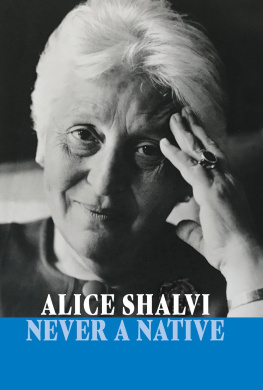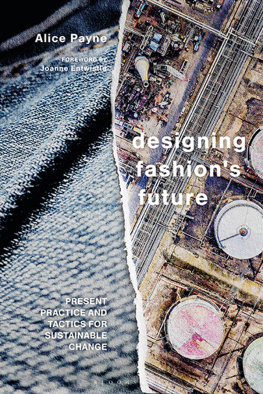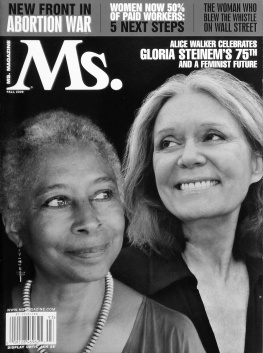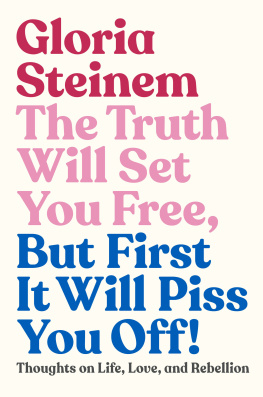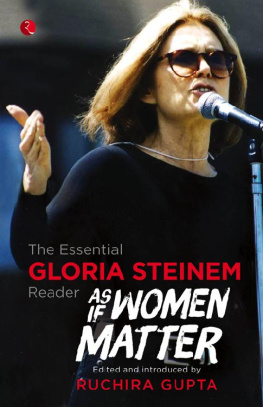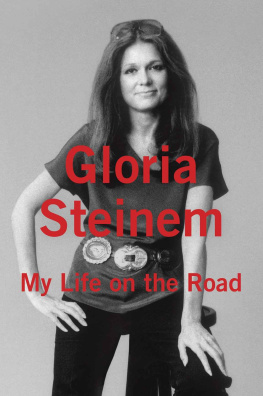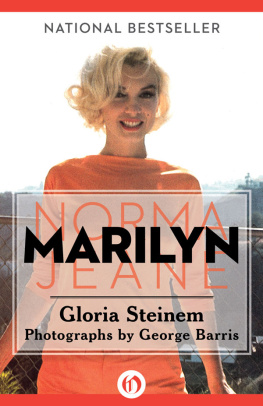Alice Shalvi - Never a Native
Here you can read online Alice Shalvi - Never a Native full text of the book (entire story) in english for free. Download pdf and epub, get meaning, cover and reviews about this ebook. year: 2018, publisher: Halban, genre: Non-fiction. Description of the work, (preface) as well as reviews are available. Best literature library LitArk.com created for fans of good reading and offers a wide selection of genres:
Romance novel
Science fiction
Adventure
Detective
Science
History
Home and family
Prose
Art
Politics
Computer
Non-fiction
Religion
Business
Children
Humor
Choose a favorite category and find really read worthwhile books. Enjoy immersion in the world of imagination, feel the emotions of the characters or learn something new for yourself, make an fascinating discovery.
- Book:Never a Native
- Author:
- Publisher:Halban
- Genre:
- Year:2018
- Rating:4 / 5
- Favourites:Add to favourites
- Your mark:
- 80
- 1
- 2
- 3
- 4
- 5
Never a Native: summary, description and annotation
We offer to read an annotation, description, summary or preface (depends on what the author of the book "Never a Native" wrote himself). If you haven't found the necessary information about the book — write in the comments, we will try to find it.
Never a Native — read online for free the complete book (whole text) full work
Below is the text of the book, divided by pages. System saving the place of the last page read, allows you to conveniently read the book "Never a Native" online for free, without having to search again every time where you left off. Put a bookmark, and you can go to the page where you finished reading at any time.
Font size:
Interval:
Bookmark:
Alice Shalvi is one of the few women in the world who lived through a world devastated by fascism, and advanced a democracy in which people are linked, not ranked. Reading about her past will inspire our future.
Gloria Steinem
Alice Shalvifeminist leader, seeker of justice, proponent of peace, innovative educator and one of Israels most admired womenreflects poignantly on her personal and public odyssey in a book that blends her own challenges, achievements and failures with those of Israel during the past seventy years.
Naomi Chazan
Professor Alice Shalvi, scholar, educator and heroic activist, tells the story of her life in a simple, almost matter-of-fact manner, as though each stage of her very rich and varied career simply flowed most naturally the one from the other. There is in this kind of presentation an underlying tone of modesty, one which downplays the struggles, the persistence and enormous energy which resulted in her massive achievements in the areas of social activism and feminism. This energy tempered with such modesty resonates as an undercurrent throughout this classic autobiography.
Daniel Sperber
These memoirs are dedicated with profound love and gratitude to the memory of the three men who shaped my life:
My father, Benzion Margulies, whose love for humankind I inherited;
My brother, William, who with unstinting generosity dispensed not only sound advice but also the material assistance that enabled my entire family to live well beyond our means;
My husband, Moshe Shalvi, the rod and staff who throughout 63 years of marriage unfailingly partnered, encouraged and supported me.
And to my children, who undoubtedly suffered as a result of my over-indulgence in public affairs, I sincerely apologise. I take comfort in seeing how different are the choices that they themselves have made.
In 1997, having retired from my academic and public activities, I was the happy recipient of a months residency at the Rockefeller Foundation Centre in Bellagio. In its tranquil grounds, amid the natural beauty of Lake Como and the intellectual stimulus provided by my fellow residents, I succeeded in writing the first 30,000 words of my memoirs a rich harvest.
Then I returned to the reality of Jerusalem, home, family, social and political involvement, and throughout long intervals the field of writing lay fallow. Only after a year of mourning for my husband Moshe did I find the strength of mind, soul and body to continue with my labours, urged on by the incessant queries of friends demanding to know when I would finish. They didnt crack a whip, preferring to offer lumps of sugar. Another year was devoted to editing various versions of the manuscript. The final incitement was an invitation to celebrate my 90th birthday in New York with a group of women whom Moshe had collectively dubbed FOAs (Friends of Alice), harking back to the years of fundraising in which I enlisted the financial and moral support of Friends of Pelech, Friends of the Israel Womens Network and so on. I could not disappoint them.
One last intensive burst of writing, comparable to that in Bellagio, and I was finished.
I cannot thank them enough.
My thanks are also due to the many friends and colleagues who provided invaluable assistance and feedback as I traversed the stony path of authorship: the late John Felstiner, who wrote the (perhaps unwarranted) glowing recommendation that won me the stay at Bellagio; my Solstice Sisters, who constituted an invaluable sounding-board for the sections I read to them at our biannual gatherings; my collaborators at the Israel womens Network, board members as well as staff, provided their recollections of our accomplishments; Aloma Halter, an experienced editor who helped me put my thoughts in order; Judy Labensohn, who served as an occasional critical reader and coach; my friend, Omi Morgenstern-Lesser, who selflessly agreed to read the entire manuscript; my beloved Rabbi, Tamar Elad-Applebaum, who restored my spirits and nourished my soul; and above all Elisheva Levy, whom the Divine Force sent to me in my hour of need, while I was sitting shiva for Moshe, and who has been a loyal companion and dear friend. Her intelligence, ingenuity and imperturbability are beyond compare.
T HEY SIT SIDE by side on a sofa, a glimpse of its carved headboard and brocade upholstery forming a background bridge between them. Both are looking directly at the camera. He is handsome and well-groomed: a high forehead; hair, already slightly receding, neatly parted on the left; a small, carefully trimmed moustache just above the bow of his upper lip. His dress is formal and festive: a dark suit, white shirt with high, stiff collar and white bow-tie. His arms are folded across his chest; his left hand is tucked into the crook of the right, the right barely visible among the folds of his left sleeve, as if he were hugging, or restraining, himself. A whole man, self-confident, complete, with a sense of occasion.
She sits to his right, wearing a simple scoop-necked dress with elbow-length sleeves, devoid of any ornament. Her bosom is soft, uncorseted. Her thick dark hair, combed softly back from a high forehead, frames the upper part of an oval face. Her head tilts slightly to the side, like a startled bird. Her large, dark eyes, pupils like black buttons a focal point in the picture, are sad, beseeching, a contrast with his almost expressionless impersonal ones. Her mouth curves gently upwards, wistful, shy, perhaps attempting a smile. Although she, too, is looking directly at the camera, she leans slightly forward, her body half turned towards him. Her left arm, an echo of the curved carved back of the sofa, is concealed, from the elbow down, behind his back, as if she felt a need for physical contact, for reassurance. Her right arm lies across her body, the curled hand resting gently on her lap. His firmness and self-assurance form a sharp contrast with her hesitancy and need for contact. It is a picture not so much of a couple as of two people.
These are my parents.
Innumerable questions arise, doomed never to be answered. When was the photograph taken? It could hardly have been on their wedding day, since on that occasion, attended by numerous family members and recorded in one of the wide-lens photographs of the period, she wore white. Is this an engagement photo? I know, from an invitation that has been preserved, that a month before the wedding there was a party at my grandparents home one Friday afternoon to mark the signing of the marriage contract. Is the simple dress she is wearing the one she brought with her from her impoverished post-war home in Galicia, her only one, which she laundered once a week?
My fathers sisters didnt welcome her, although she was their cousin. They were, and forever remained, of the opinion that he could have made a far better match with one of the more elegant, wealthier, self-confident young women who had displayed an interest in him. Perhaps there was some truth in their claim that he was marrying her out of pity, having met her for the first time a year earlier, in 1919, on his way back to Germany from captivity in Russia (where he had served as a medical orderly with the Austro-Hungarian army). He was, indeed, a very compassionate man, quite capable of self-sacrifice. Were these the grounds for her insecurity, her need for reassurance?
They had, on the whole, a good marriage, despite the extreme contrast in personalities he a dyed-in-the-wool optimist, she an eternal pessimist. They quarrelled a great deal: she contended that he was too immersed in his communal voluntary activities, too liberal in donating his hard-earned and not always plentiful income. Extremely generous by nature, he was easily moved to charitable deeds. She believed that charity begins at home, though she never turned away any of the beggars who came to our door, often inviting them in to partake of a bowl of soup and a slice of bread. Yes, they quarrelled, but he once assured me that this did not mean that they didnt love each other.
Font size:
Interval:
Bookmark:
Similar books «Never a Native»
Look at similar books to Never a Native. We have selected literature similar in name and meaning in the hope of providing readers with more options to find new, interesting, not yet read works.
Discussion, reviews of the book Never a Native and just readers' own opinions. Leave your comments, write what you think about the work, its meaning or the main characters. Specify what exactly you liked and what you didn't like, and why you think so.

